UNC – Chapel Hill will soon have a new chancellor, and the Town of Chapel Hill is waiting to see the impact that could have on the community.
Carol Folt announced Monday that she would be stepping down as chancellor and that she had ordered the remaining base of the Confederate monument known as Silent Sam to be removed from campus.
“I’m very sad to see Carol go. She’s put a lot of good things into play at UNC,” Chapel Hill Mayor Pam Hemminger said in an interview on WCHL’s The Aaron Keck Show Thursday.
Hemminger listed a passion for students, education, scholarship, accessibility and partnerships with the town among the qualities that Folt brought to the position.
“I also know she cared very deeply about getting rid of the statue and the pedestal,” the mayor said. “Kudos to her for standing up and doing the right thing even though she was pretty sure of what that outcome would be.”
After Folt announced she would be resigning at the end of the academic year, the UNC System Board of Governors accelerated that timeline to make the resignation effective at the end of January.
“It’s unfortunate that our Board of Governors feels very differently from how the community feels today. We’re grateful that she was willing to take this bold step.”
Hemminger petitioned Folt to have the monument be removed after an August 2017 white supremacist rally in Charlottesville, Virginia, where a counterprotester was killed. Folt maintained that she would prefer the statue be moved to an off-campus location, but that she felt the university did not have that authority due to a 2015 law limiting the movement of objects of remembrance.
The statue was then toppled in August 2018 before Folt ordered the removal of the remaining base on Monday.
“It’s really helpful because there’s no longer this monument that represents white supremacy right at our doorstep,” Hemminger said. “But, also, there’s no longer a gathering point for people to rally. Our biggest concern has been that someone was going to get hurt.”
The mayor and police chief have said on several occasions in recent months that constant protests at the monument were draining town resources.
The Board of Governors is now continuing on a timeline laid out in December where a delegation of the board working with the campus is scheduled to bring a recommendation for the future of the monument forward in mid-March.
“The town’s not privy to whatever the Board of Governors is doing,” Hemminger said. “We do have good communications with our Board of Trustees, and they know our wishes; they know what our preference is.”
Related Stories
‹
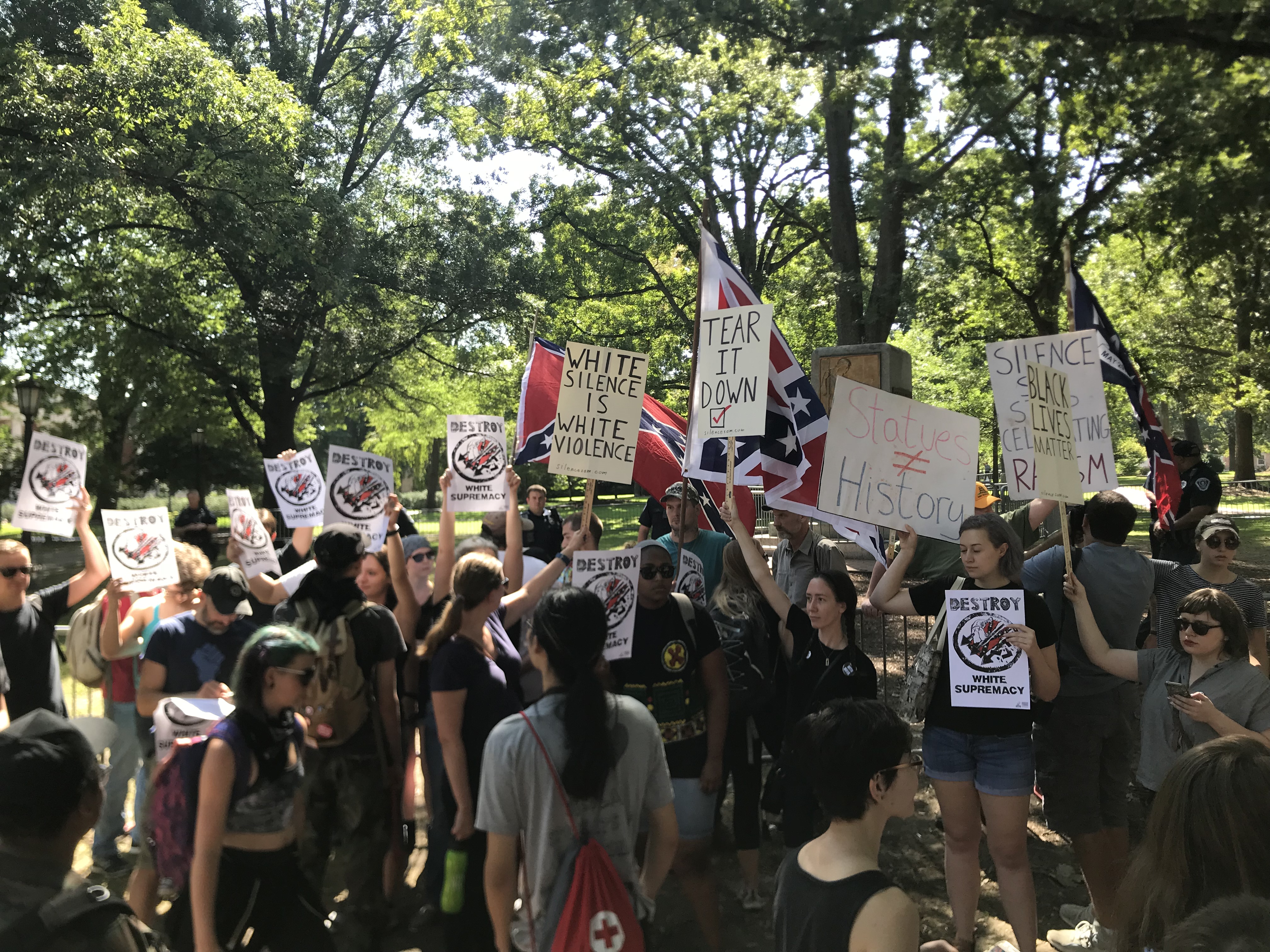
Chapel Hill to UNC: Relocate Silent Sam Away from the TownChapel Hill Mayor Pam Hemminger and members of the Town Council sent a letter to UNC following the voided lawsuit between the university and a pro-Confederate group. Last week, Judge Allen Baddour ruled that the Sons of Confederate Veterans lacked evidence to prove the group had legal standing to bring action against the UNC System and dismissed […]
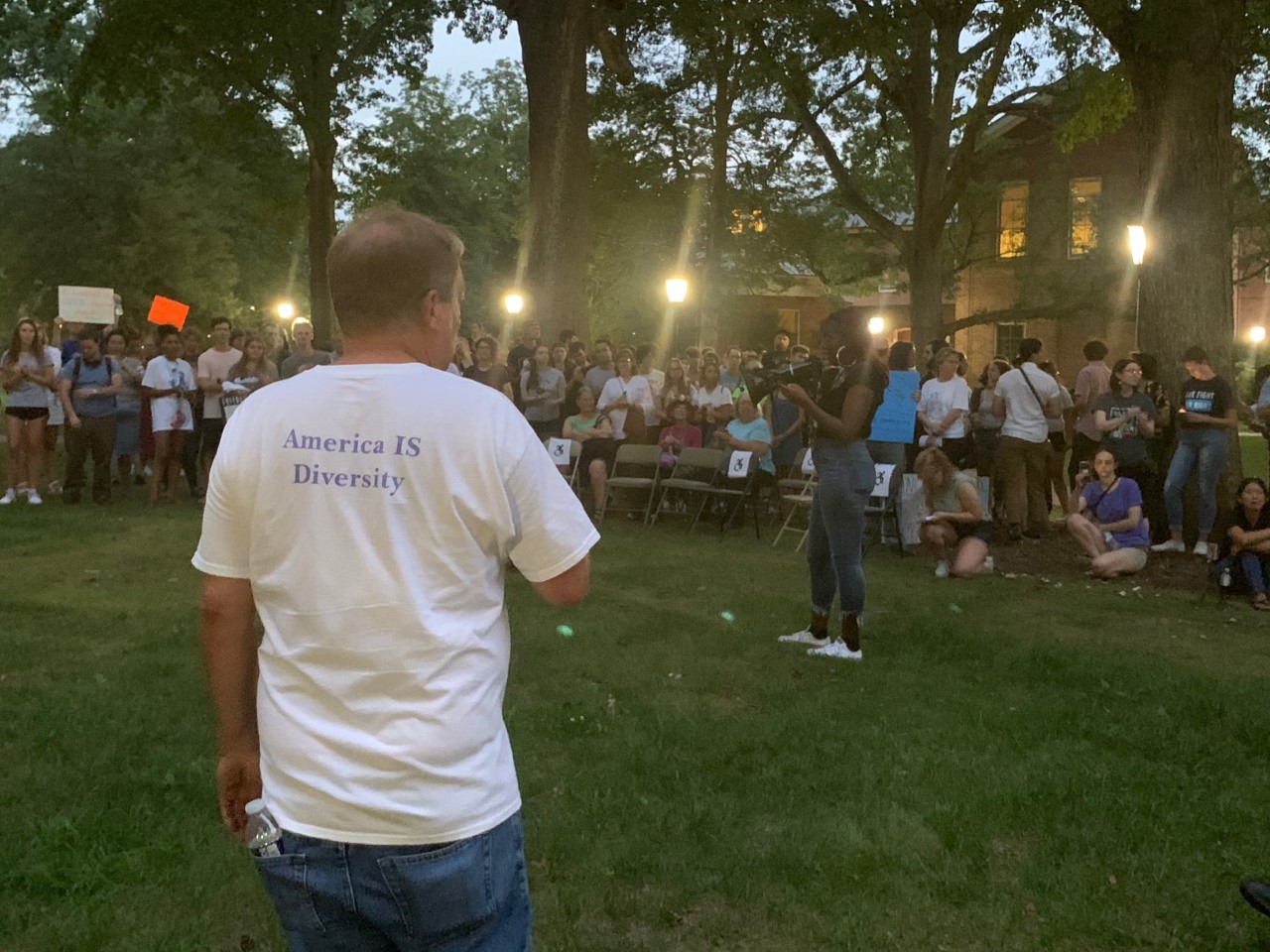
Groups Celebrate Anniversary of Silent Sam Toppling at UNCSinging and chanting started a rally Tuesday night celebrating the one-year anniversary of the Confederate monument on the UNC campus known as Silent Sam being toppled by protesters. A coalition of groups organized Tuesday’s event, including a land acknowledgment from a member of the Carolina Indian Circle and remarks from Barbara Sostaita with UndocuCarolina – […]
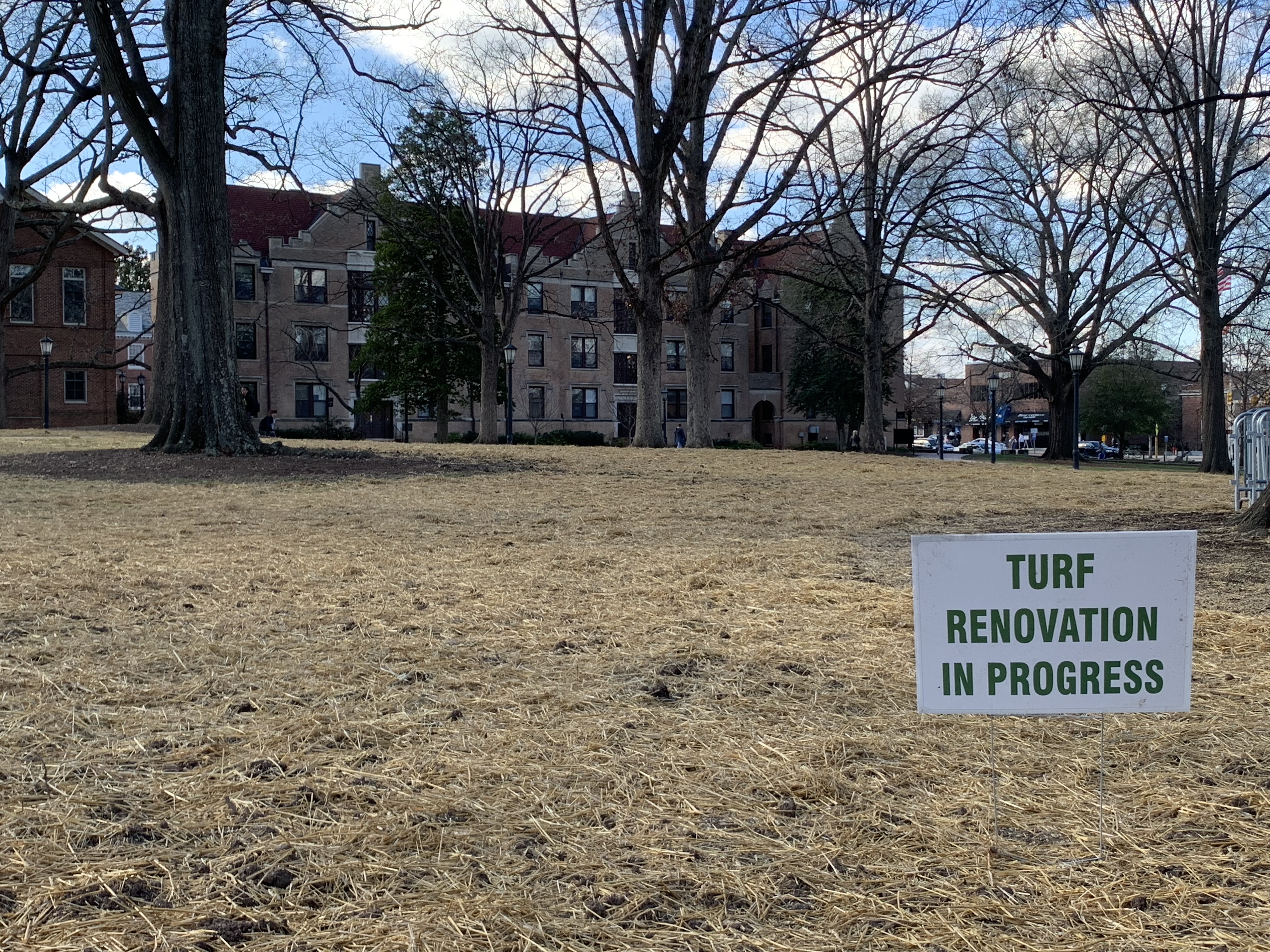
Silent Sam Decision Clouding Start of UNC Academic YearProtesters pulled the Confederate monument known as Silent Sam down from its pedestal on McCorkle Place on the UNC campus one year ago. But the monument’s future – whether on or off campus – is still undecided. That event on August 20, 2018, was the culmination of protests calling for the university administration to remove […]
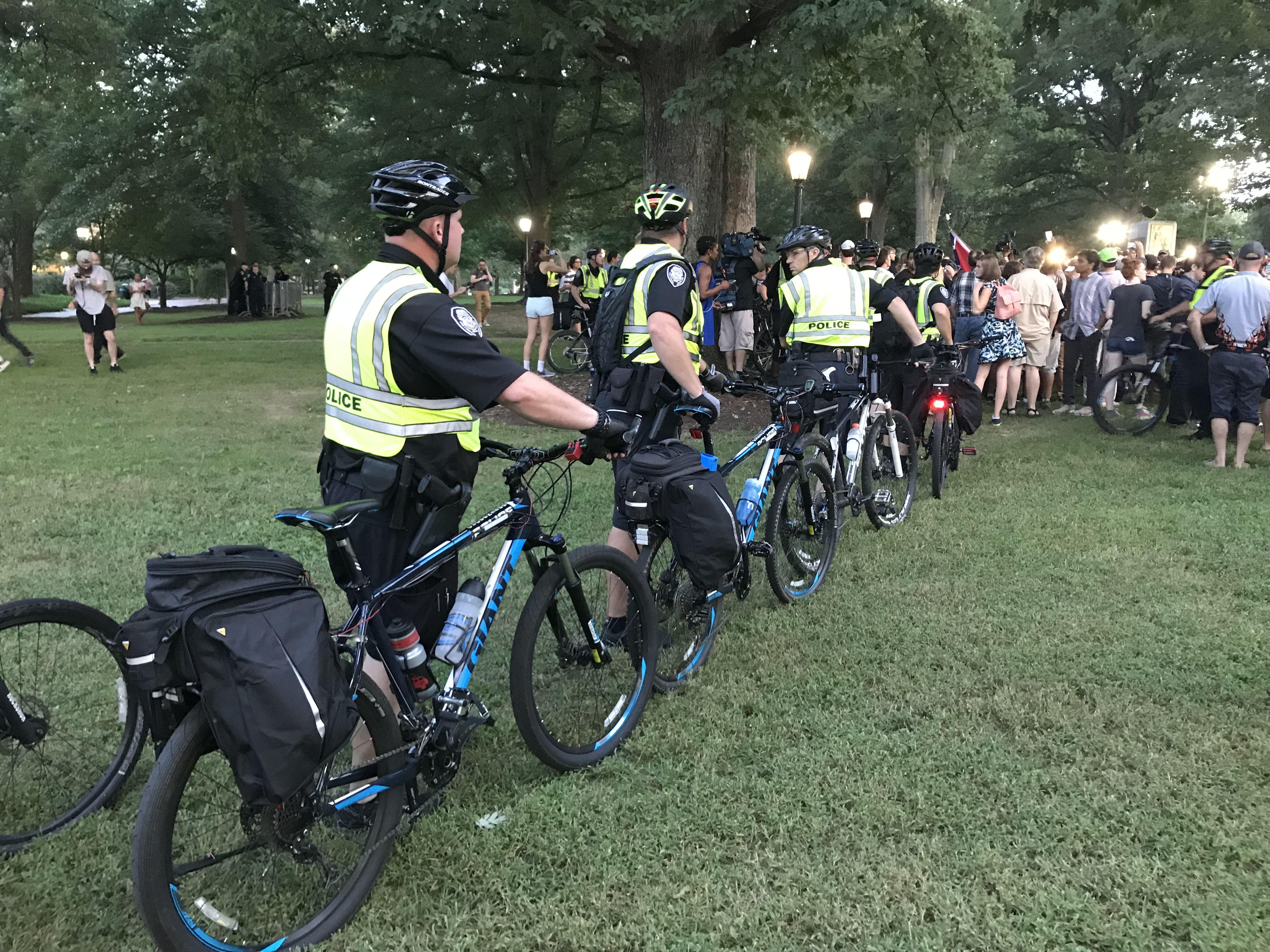
Silent Sam Decision Looms Over UNC, Search for Police ChiefJeff McCracken’s retirement as UNC Police chief, which was announced earlier this year, is effective Monday, and the university has named Thomas Younce as his interim replacement. UNC – Chapel Hill Board of Trustees chair Haywood Cochrane said after a special meeting of the board last Thursday that the national search for a permanent police […]

After Tumultuous Academic Year, UNC Board Still Divided on Silent SamWhile the Confederate monument known as Silent Sam wasn’t officially on the agenda for Wednesday’s meeting of the UNC System Board of Governors, it was still on the minds of many at the meeting. The initial mid-March deadline for a new plan for the statue that stood on the UNC – Chapel Hill campus for […]

UNC Governors Will Not Discuss Silent Sam at May MeetingContinuing a series of delays, the UNC System Board of Governors will not discuss the future of the Confederate monument on the UNC – Chapel Hill campus known as Silent Sam at the board’s May meeting. Board chair Harry Smith made the announcement Tuesday afternoon. “In early March, we set the May meeting of the […]

UNC, Chapel Hill Planning for Possible Demonstrations SaturdayOfficials from UNC and the Town of Chapel Hill are preparing for the potential for demonstrations in downtown where the campus and town meet on Saturday. The UNC administration sent a message to the campus community on Friday that said the university “is preparing for the possibility of opposing demonstrations on and near campus.” The […]
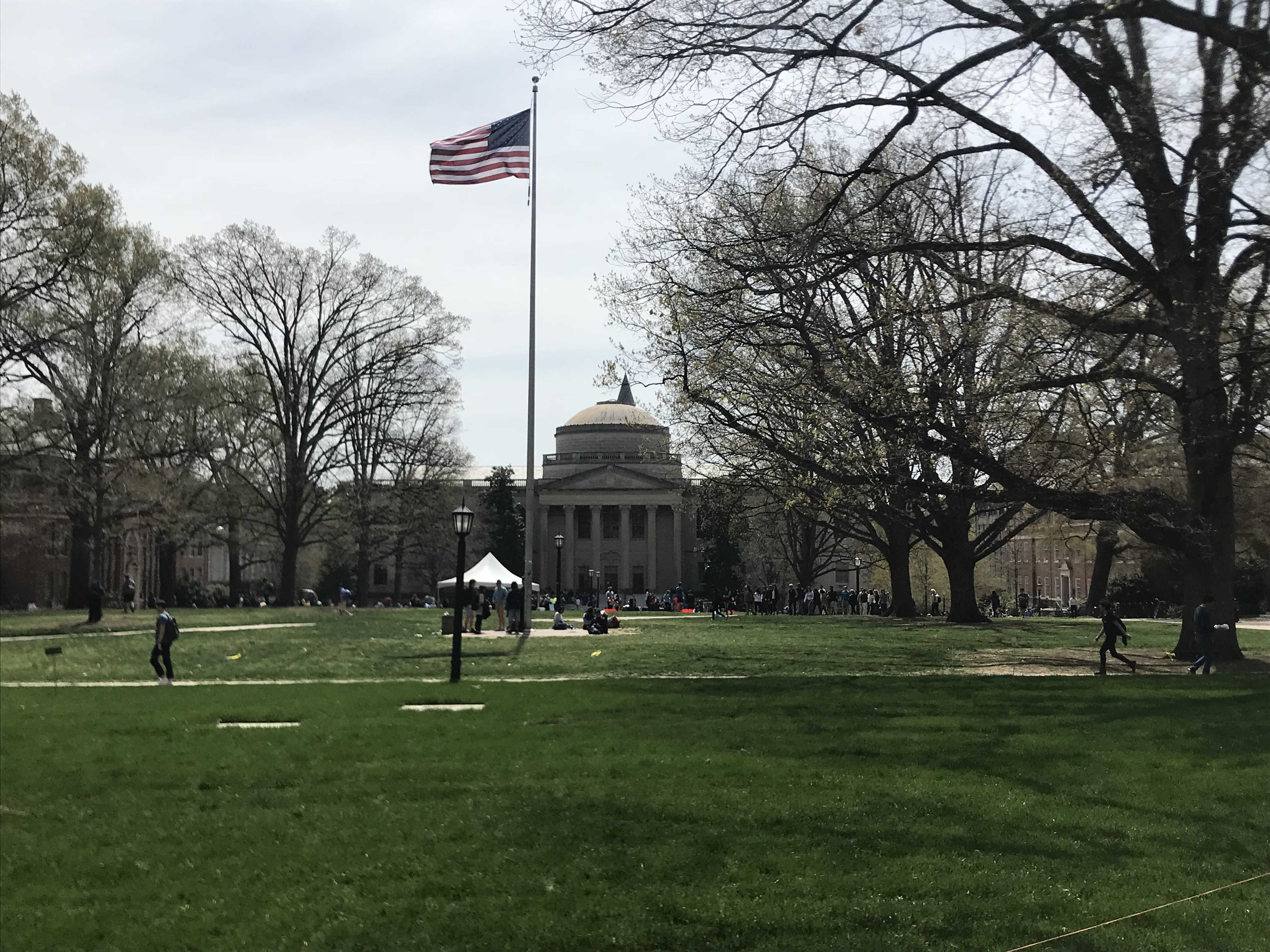
UNC Chair Says Faculty had Good Meeting Discussing Silent Sam with Board of GovernorsLeslie Parise announced late last month that she would be stepping down from her role as faculty chair. She joked during her address to the Board of Trustees University Affairs committee on Wednesday that leaving two years into the three-year appointment was fitting with recent university turnover. “Because, as you know, interim is kind of […]
![]()
UNC Police: 'Permanent Marker and Urine' Used to Deface Unsung Founders MemorialUNC Police have sworn out warrants for two suspects wanted in connection with two “racist actions” on the campus on Sunday. Authorities on Monday afternoon released incident reports for the two instances. The suspects used “permanent marker and urine” to vandalize the Unsung Founders Memorial on McCorkle Place. An outdoor art installment near the Hanes […]

UNC Investigating 2 'Racist Actions' on Campus SundayUNC Police are investigating multiple “racist actions” that were carried out on the campus on Sunday. “Two individuals defaced the Unsung Founders Memorial, writing racist and other deplorable language on it,” interim chancellor Kevin Guskiewicz wrote in a message to the campus Sunday evening. The Unsung Founders Memorial was a donation from the class of […]
›






